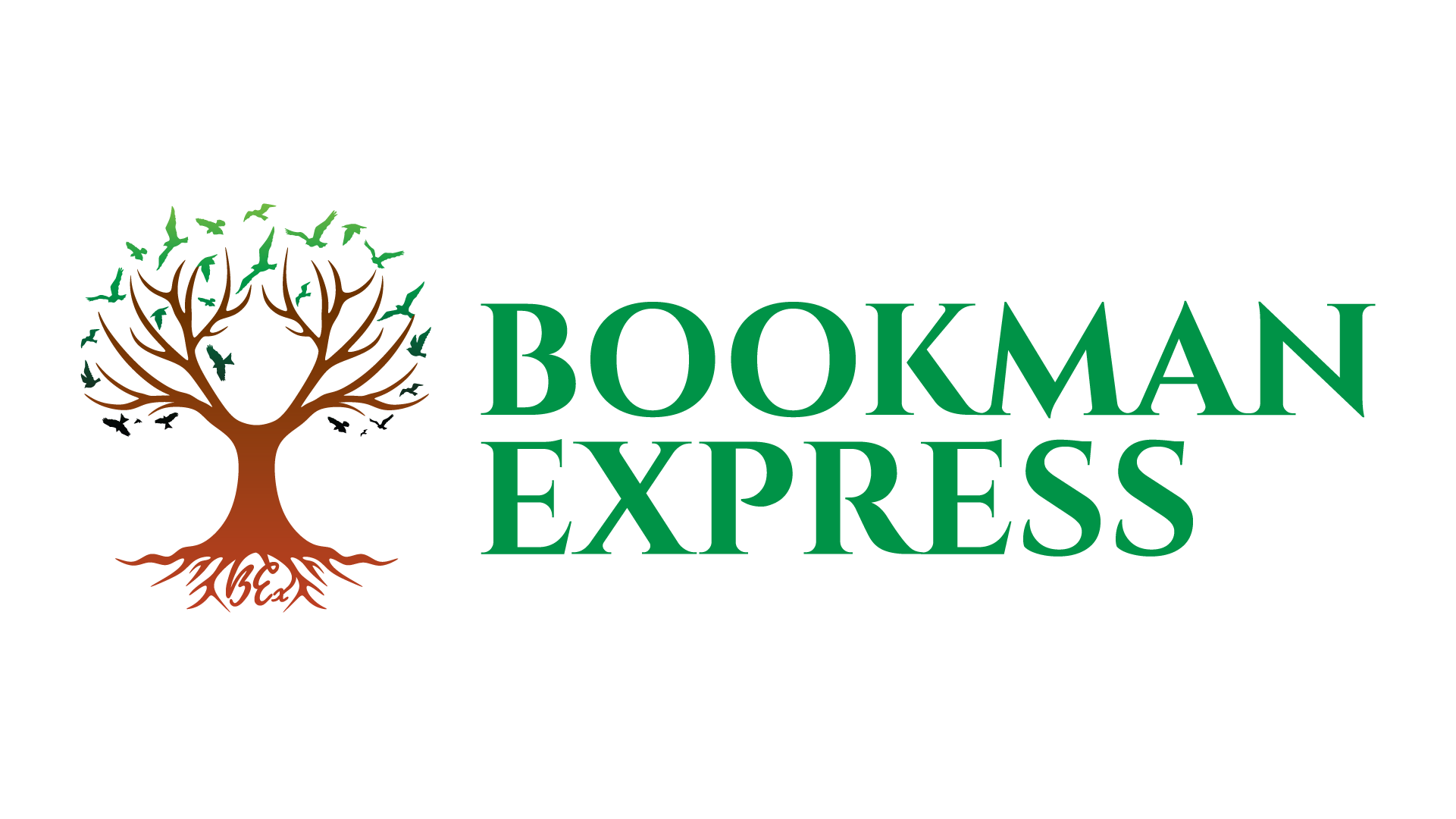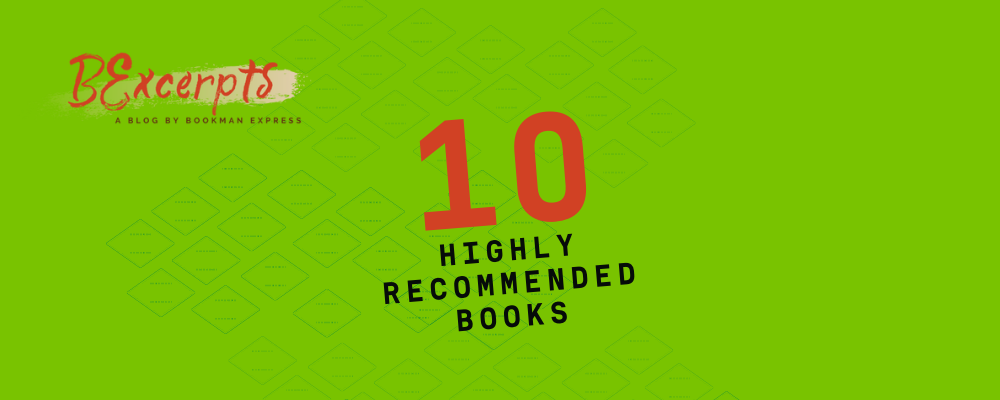Last year, we re-imagined our blog and BExcerpts was born with the intention of giving a home to the empowering thoughts of some progressive human beings living among us in this time. Since then, we have published many beautiful conversations featuring a variety of forward-thinking personalities. We have been blessed by the words of builders, scientists, Yogis, a popular singer, a Taino chief and more. All our conversations flow differently but one of the things we request of them all is to share book recommendations.
As we prepare to celebrate the 10th anniversary of Bookman Express later this month, we’ve compiled a list of 10 key books from our reasonings with these extraordinary people. Even though our recommenders all portray a solution-oriented mindset, they still obviously see an urgent need (based on their selections) for more people to grasp the sources of overarching problems. These titles seem like a great place to start for a solid awareness of African and indigenous realities, especially connected to the global legacy of European colonization and oppression.
1. How Europe Underdeveloped Africa (by Walter Rodney)
Recommended by Jah9
This is a fitting start to our list for at least two reasons. One, the self-explanatory title delves into a reality that all peoples of planet Earth should be aware of. Two, it is a classic work written by an outstanding Caribbean intellectual – the author is Guyanese – who applied his brilliant mind to breaking down how Africa’s development (and, therefore, its peoples’ well-being) was systematically disrupted by outsiders.
2. Kalinago Blood (by Alick Lazare)
Recommended by Machel Emanuel
This work of historical fiction is set on the island of Saint Kitts, where the indigenous Kalinago people encountered the uninvited British. Our recommender, Dr. Emanuel, was drawn to the story because he hails from nearby Dominica, which he told us has the only thriving population of Kalinago today. Maybe Kalinago Blood gives insight into why the same cannot be said about Saint Kitts.
3. King Leopold’s Ghost (by Adam Hochschild)
Recommended by Tiffanie Anderson
The Congo continues to be a place of great interest for foreign exploiters. This book is renown for how it examines the history of Belgium’s colonization of the Congo and the brutal, holocaust-like extermination of its people in the process.
4. The Wretched of the Earth (by Frantz Fanon)
Recommended by Kasike ‘Kalaan’ Nibonrix Kaiman and Jah9
Here we have another of the Caribbean’s great thinkers. This author was born and raised in Martinique before becoming a reputable psychiatrist. His book is a brilliant cause-and-effect examination of the psychosis of colonized peoples, inevitably deepening the reader’s overstanding of certain observable conditions affecting indigenous populations even today. The clarity that one can gain from this work is probably not to the liking of present-day oppressors.
“They didn’t expect us to read Fanon.” – Jah9
5. The Mis-Education of the Negro (by Carter G. Woodson)
Recommended by Binghi Shawn
If nothing else, this list shows us that the classics never get old. Well written books will withstand the test of time. In this case, we have an iconic dissection of the conditions faced by Africans-Americans, who have endured a special brand of oppression like none other, and whose education was developed deliberately to enslave them for generations. Its author is also known for instigating ‘Negro History Week’ (during the 1920s), which has since evolved into what we call ‘Black History Month’ today.
6. They Came Before Columbus (by Ivan Van Sertima)
Recommended by Ama Makeda
Another popular text that proposes a legacy of African exploration and impact in the Americas long before Christopher Columbus and his ilk. There has been a lot of opposition to the work of this Guyanese author, who was also a professor at a reputable university.
7. My Life and Ethiopia’s Progress, Volumes 1 and 2 (by H.I.M. Emperor Haile Selassie 1st)
Recommended by Binghi Shawn and Jah9
We’re happy that this 2-part autobiography by Ethiopia’s Emperor Haile Selassie 1st was recommended twice on our blog because everybody shoulda know who Ras Tafari is. His Imperial Majesty had tremendous impact on world affairs, being the only head of state to address both the League of Nations and the United Nations, and being crucial to the establishment of the Organization of African Unity (now known as the African Union). In his own words, the man himself pens his account of the trials faced while working to modernize his country.
8. The House of Hunger (by Dambudzo Marechera)
Recommended by Tiffanie Anderson
Non-fiction reigns on this list but here we have another fiction recommendation, coming from the founder of a destination management company that specializes in tours across Africa. This is an award-winning novella, set in Rhodesia (now Zimbabwe).
“I think you can accomplish travel through reading because reading can really take you away.” – Tiffanie Anderson
9. Earliest Inhabitants (by Lesley-Gail Atkinson)
Recommended by Kasike ‘Kalaan’ Nibonrix Kaiman
Many people still believe that the Taino people are extinct but, believe it or not, this recommendation comes from the living, breathing, current Medicine Man and Chief of a Jamaican Taino tribe. The book’s subtitle, The Dynamics of the Jamaican Taino, is a major clue to its content. It is a collection of writings that analyze archeological findings connected to the social order of the Taino before they were disturbed by colonialists.
10. Letters to a Young Farmer (by Stone Barns Center for Food and Agriculture)
Recommended by Maleah and Ken
The final recommendation is a major outlier on this list. It appears to have no direct bearing on African or Indigenous history or realities, and it is also written by an overwhelmingly white collective that we recently realized has connections to the Rockefeller family (who we don’t particularly care to support when other great entities are surely doing similar work from more Indigenous perspectives). This book simply does not belong, so why include it? Maybe because we believe that we should never exist in a bubble and should strive to be aware of the thoughts and approaches of even the privileged. Maybe because it was recommended by two young people who we acknowledge as being seriously immersed in sustainable farming and living. Maybe because we know that best practices in Earth stewardship are universal, no matter one’s background. The inclusion of this book is a reminder for us to step out of our comfort zones from time to time. Knowledge is knowledge.

